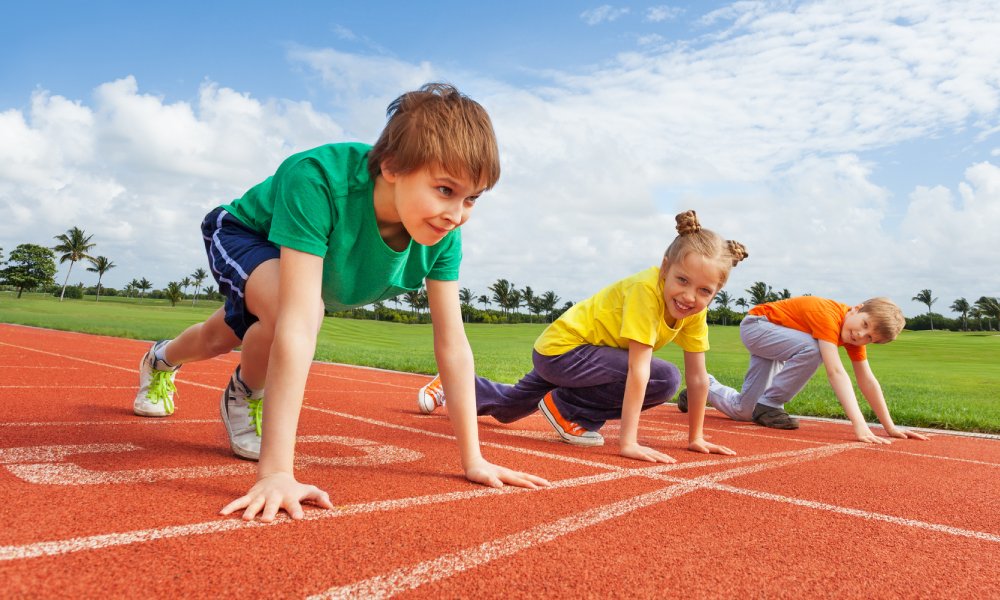When we are parents, one of our biggest concerns is ensuring child development that leads to a healthy adult life. That’s why we try to establish healthy habits that will help them in the future. In addition to diet, physical exercise is very important in creating these healthy habits. In general, we all have a favourite sport, and the case of your children is no exception. It is important to know which sporting discipline they are excited by and, as far as possible, support them so they can play it. However, if your children do not show much interest in any particular option it is good to encourage them to find out for themselves. But, of course, we have to resist the temptation to pressure them or impose our own personal preferences. Why should you be really interested in getting your kids to do a sport? What are the benefits offered by physical activity in the development of children? We will discuss that in this article.
Child development and sports
An active lifestyle produces positive effects on children and adolescents. For children, these effects are not fleeting, they stay with them for the rest of their lives. Whilst your children are still young, you want to help them fully develop all their capabilities. The early years are crucial in the full development of a person. During this stage they receive all types of information and stimulation which play a role in forging their personality. That’s why, physical activity is one of the factors that help to define personality. However, the rise of sedentary lifestyles threatens this development. We are sure you’ll be interested in this article about sedentariness in children.
What are the benefits of being sporty from childhood?
Below, we give you 8 reasons that show the link between sporting activities and child development.
1. Promotes child development: physical and mental
All human beings undergo a biological process of growth during the first years of our life. This development includes the growth of bones, organs, muscles, and the systems that comprise an individual. In other words, playing sports has a large impact on their growth. In fact, it has been proven that there is a link between regular physical activity and an increase in muscle and bone tissue. Playing a sport regularly from a young age improves space perception, as well as coordination, agility, and balance. Furthermore, constant physical activity strengthens systems: respiratory, nervous, circulatory, immune, and digestive.
2. Prevents child obesity problems
Sport prevents child excess weight and obesity, both in childhood and adulthood. Daily training also helps to strengthen muscles and bones. This benefit has a direct effect on self-esteem which makes the child feel more secure.
3. Teaching the importance of rules
An important part of child development lies in teaching the child to accept rules with good grace and respect others. By playing a sport, children will be learning valuable lessons which will help them when they reach adulthood.
4. Helps to develop discipline
Sport helps to create healthy life habits. Athletes need to exercise self-control to improve their results. They also have to force themselves to train even when they are tired, to follow a balanced diet, and to rest enough. Maybe your child won’t become a professional athlete. But being part of a sports team will help him or her to nurture the quality of discipline. That quality will stay with them for the rest of their life and will show them that they need to try if they want to succeed at what they do.
5. Works off excess energy
There are children who need to let off pent-up energy. So, encouraging them to do physical activities can help them to deal with stress and anxiety. It will also help them to control sleep disorders. That’s why, it is recommended that children who tend to get easily irritated play a sport. It is an acceptable way for them to channel their emotions.
6. Child development improves self-esteem
By carrying out physical activity, the body releases endorphins, which are responsible for giving us feelings of satisfaction and wellbeing. Likewise, sport promotes the need to try until the goal is reached. And reaching your goals leads to improving your self-esteem.
7. Promotes teamwork and improves social skills
One of the most noticeable advantages of team sports is that they force players to work as a team or, at least, interact with other athletes. Teambuilding, cooperation, and collaboration are an essential part of social integration. What’s more, being part of a team fosters respect, tolerance, and equality.
8. Promotes responsibility and strengthens the feeling of belonging
The feeling of belonging is linked to the level of commitment and identification that an individual has towards the group and the activity they are doing together. For its part, being responsible implies being aware of our own obligations and the consequences of not meeting them. Therefore, exercise develops the value of effort.
We encourage you to build sporting spirit in your children and see for yourself the benefits of sporting activities.










